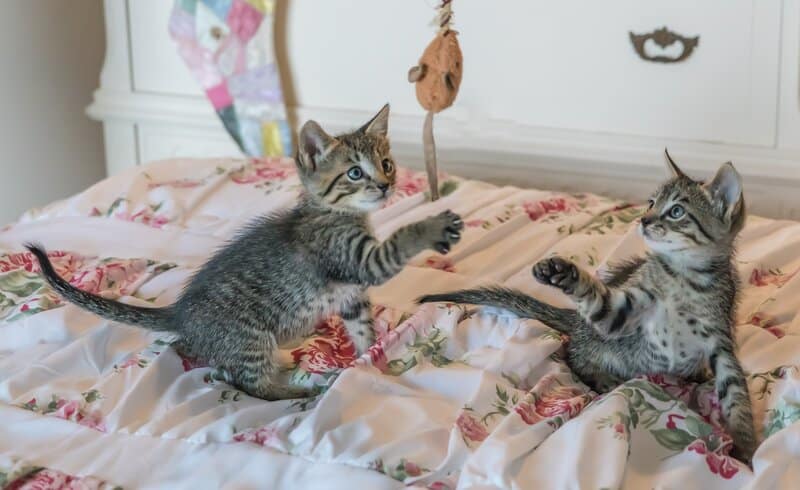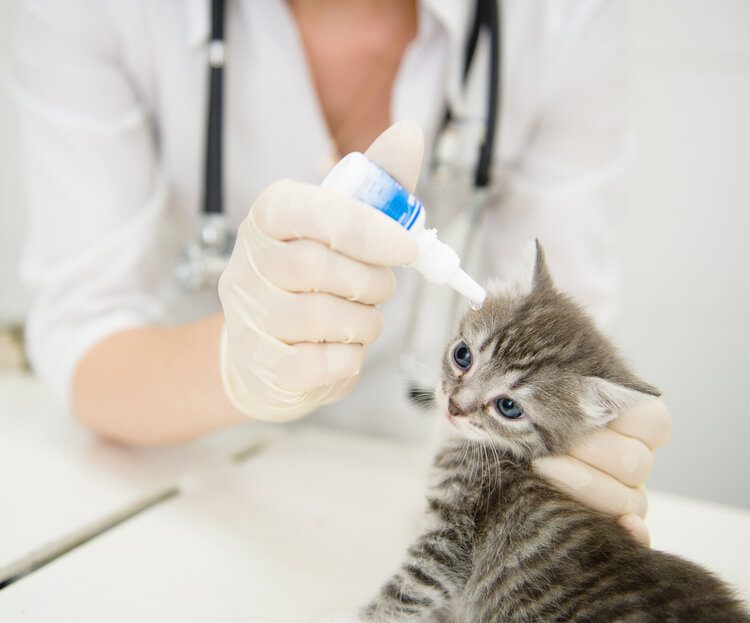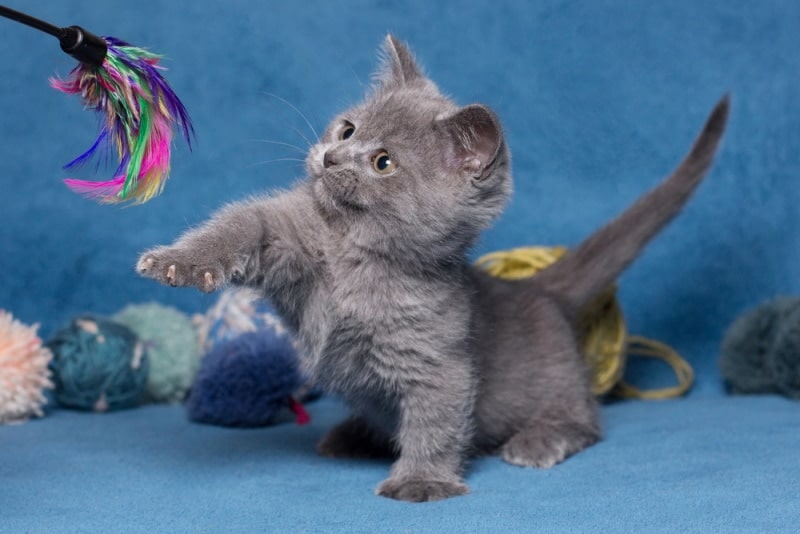It’s not uncommon for new cat owners to be surprised by their kitten’s aggressive behavior. While it might seem cute and playful at first, it can quickly become a concern if it continues. So why do some kittens act aggressively?
We’re looking into six reasons why your kitten might be acting this way and providing some tips on how to manage the behavior.

The 6 Reasons Why Your Kitten is Aggressive
1. Play Aggression
One of the most common reasons for aggressive behavior in kittens is play aggression. This occurs when kittens are learning how to stalk, pounce, and capture prey. Although it’s a natural part of their development, it can sometimes escalate into more aggressive actions.
To help prevent play aggression from becoming a problem, provide your kitten with plenty of toys and engage in regular play sessions to help them burn off energy and satisfy their hunting instincts.

2. Overstimulation
Kittens can become overstimulated when they receive too much attention or are exposed to an overwhelming environment. When this happens, they may respond with aggression as a way to cope.
If you wish to get overstimulation under control, pay attention to your kitten’s body language and learn to recognize when they’ve had enough. Give them a quiet, calm space where they can retreat and avoid exposing them to excessive noise, activity, or other stressors.
3. Fear or Anxiety
Fear and anxiety can also cause aggressiveness in kittens. This might happen if they feel threatened or unsure in their environment. It’s essential to provide a safe, secure space for your kitten to explore and acclimate.
Avoid sudden movements, loud noises, or anything that might scare them. If you think fear or anxiety might be causing your kitten’s aggression, work on building their confidence through positive reinforcement and gradual exposure to new experiences.

4. Territorial Behavior
As cats grow older, they may start to become territorial, which can manifest as aggression. This is particularly common in kittens who haven’t been socialized with other animals, such as those that were hand-raised.
To reduce the risk of territorial aggression, socialize your kitten with other pets and humans early on. Provide them with plenty of opportunities to explore and mark their territory through scratching posts and other designated areas.
5. Medical Issues
Aggressive behavior can sometimes be a sign of an underlying medical issue. Pain or discomfort can cause a kitten to lash out, even if they’re usually well-behaved. If your kitten’s aggression seems sudden or uncharacteristic, it’s essential to consult with a veterinarian to rule out any potential health problems.
They can recommend treatments or solutions that can help alleviate your kitten’s discomfort and reduce their aggressive tendencies.

6. Learned Behavior
Lastly, kittens may start to act aggressive if they’ve learned it from other cats or from their previous experiences. For example, if a kitten has been separated from their mother too early, they may not have learned proper social skills.
In these cases, it’s crucial to be patient and consistent in your training efforts. Reward good behavior and gently discourage aggression by withdrawing attention when it occurs. Over time, your kitten should learn more appropriate ways to interact.

Tips for a Healthy Kitten Environment
Creating a healthy environment for your kitten is crucial in preventing aggressive behavior and ensuring their overall well-being. Here are some tips to help you provide a nurturing space for your feline friend:
- Provide Plenty of Toys and Activities: Ensure your kitten has a variety of toys and activities to keep them mentally and physically stimulated. This can help curb aggressive behavior by channeling their energy into play and exploration.
- Offer a Safe Space: Create an area in your home where your kitten can go when they need some alone time. This can help reduce stress and anxiety, which can contribute to aggressive behavior.
- Proper Socialization: Introduce your kitten to a variety of people and other pets in a controlled environment. Gradual, positive exposure to new experiences can help them build confidence and prevent territorial or fear-based aggression.
- Maintain a Consistent Routine: Establish a daily routine for feeding, playtime, and sleep. Consistency can help your kitten feel more secure, reducing the likelihood of aggressive behavior.
- Adequate Scratching Opportunities: Provide scratching posts or pads for your kitten to satisfy their natural instinct to scratch. This can help prevent destructive behavior and reduce the chance of territorial aggression.
By implementing these tips and maintaining a healthy, stimulating environment for your kitten, you can help reduce aggressive behavior and set the foundation for a strong, loving bond with your furry companion.


Conclusion
Understanding the reasons behind your kitten’s aggressive behavior is the first step in addressing it. By providing a safe environment, appropriate socialization, and consistent training, you can help your kitten develop into a well-adjusted, loving companion.
Remember that patience and persistence are key, and don’t hesitate to seek professional help if you’re struggling to manage your kitten’s aggression.
Featured Image Credit: Fang_Y_M, Pixabay





